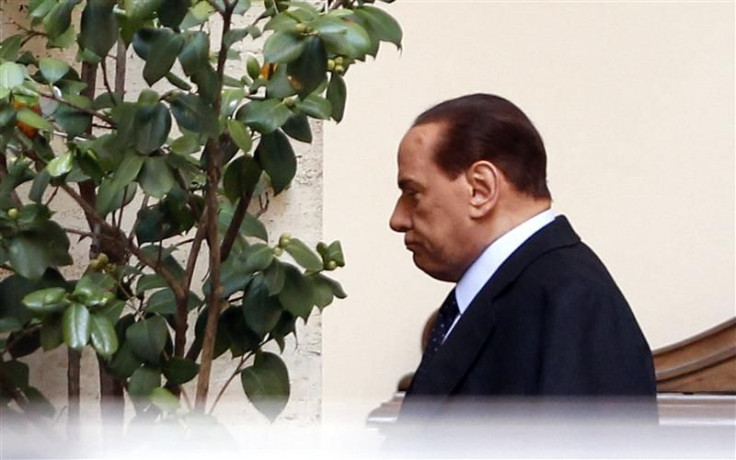Italy’s Lower House Passes Austerity Package, Assuring Silvio Berlusconi’s Exit

The lower house of the Italian parliament passed an austerity package on Saturday, paving the way for three-time Prime Minister Silvio Berlusconi to resign from office.
In the lower house, the vote was 380-26, with only two abstentions.
The austerity package -- which includes spending cuts, tax hikes, a boost in the retirement age, pension freezes and the disposition of certain state assets -- were demanded by the European Union (EU) in order for Italy to get a grip on its massive debt problems and restore the markets’ confidence in its economy.
The government expects that by imposing austerity it will save 59.8 billion euros ($81.5 billion) and balance the budget by 2014.
The Senate in Rome had already approved the bill on Friday.
Berlusconi, who lost his majority in the Parliament earlier in the week, promised he would resign if both chambers of the legislature passed the austerity bill.
Once the controversial and scandal-ridden Berlusconi quits, an interim government led by the technocrat Mario Monti, a former EU commissioner, will probably be formed, perhaps as early as this Monday.
Berlusconi is expected to officially tender his resignation to President Giorgio Napolitano sometime this weekend.
Outside Parliament, a crowd of people cheered Berlusconi’s imminent departure, some chanting Resign and Bye bye Silvio.”
We thank Berlusconi for what he has done for all these years, said Fabrizio Cicchitto, an MP from the prime minister's formerly ruling People of Freedom Party (PDL).
However, opposition MP Dario Franceschini said he looked forward to the end of Berlusconi’s reign.
Today the curtain falls on a long and painful phase of Italian political history, he said in a statement.
The country wants to turn the page and start again.
However, according to media reports, elements of the formerly ruling PDL party and its coalition partners the Northern League are deeply opposed to Monti.
On Friday, Italy’s foreign minister Franco Frattini, who supports a Monti administration, called Ignazio La Russa (who opposes Monti) a “fascist.”
Meanwhile, the next government -- whether it is led by Monti or not -- faces the insurmountable task of reducing Italy’s 1.9 trillion euros ($2.6 trillion) of debt, with a debt burden equal to 120 percent of annual GDP.
Complicating matters is Italy’s tepid economic growth; GDP is expected to climb by less than 1 percent both this year and next. Over the past 15 years, Italy’s economy has expanded by an average of only 0.75 percent annually.
European markets got a scare earlier this week when the yield on Italy’s 10-year sovereign bonds soared above 7 percent -- a panic level that suggests the country’s debt is unsustainable and would require a bailout.
However, given Italy’s size (it is the third-largest economy in the Eurozone), a financial rescue would severely stretch (perhaps destroy) the EU’s coffers.
A group of EU officials have arrived in Rome to monitor the implementation of the austerity program.
The newspaper Corriere della Sera grimly warned that Italy had to form a new government under Monti quickly.
On the eve of Berlusconi's resignation, there is still great confusion, the newspaper warned.
A group of union and business leaders similarly stated: By Monday, Italy must have a new emergency government, with a respected leader and the broadest possible consensus in parliament.”
© Copyright IBTimes 2024. All rights reserved.











